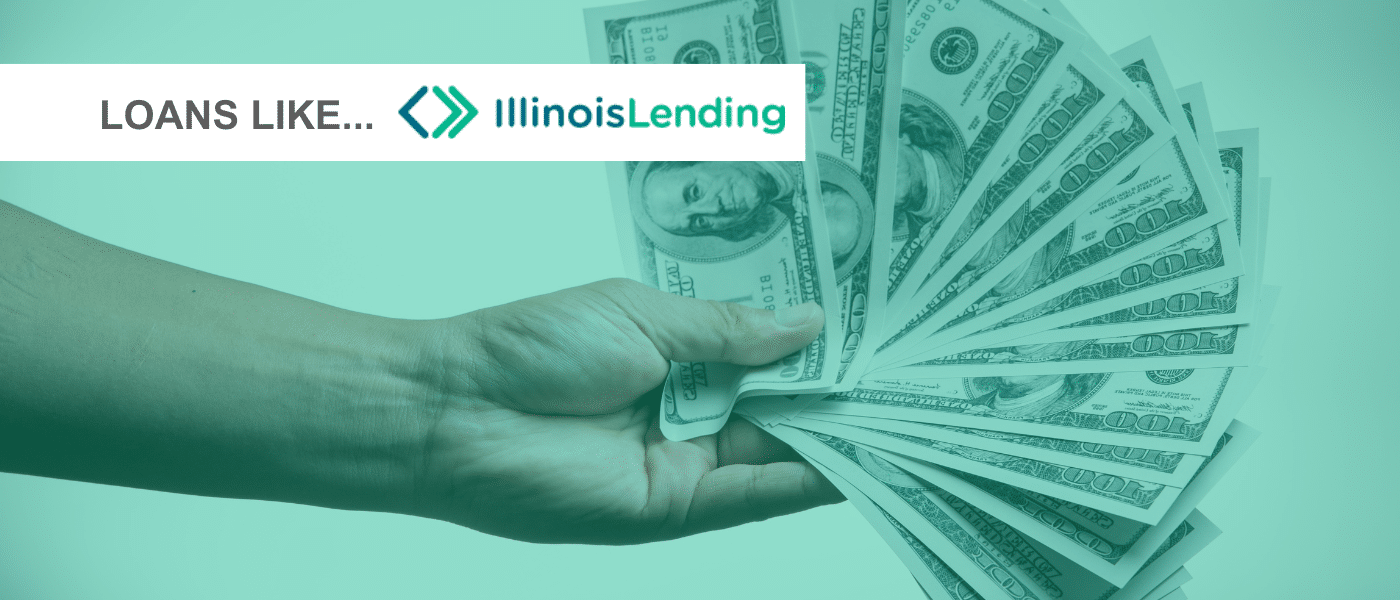Financing a phone may or may not build credit, depending on the lender. But there are ways to get your phone bill reported to each credit bureau. This way, phone financing can help build credit. Continue reading for more information on the question, “Does financing a phone build credit”
More Than One Way To Build Your Credit
Luckily, there are many ways to build credit other than just opening new credit card accounts. Financing options with significant purchases like financing a new phone can build credit, depending on what phone provider you are purchasing your cell phone from.
When it comes down to it, what is most important in building your credit is consistent on-time payments and engaging in responsible practices with financial products that get reported to the three major credit bureaus. And if you don’t have a credit score, getting started with these types of bills can be helpful. You should also know that you are not all; there are 49 million people who don’t have a credit score, 28 million are “credit invisible,” and 21 million are “credit unscorable”.1
We can walk you through how financing a new cell phone purchase with an installment plan could affect your credit and why. And, if you need additional ways to make a favorable improvement on your credit score, we have you covered with several ways you can establish a solid foundation in your credit history.
What Is Included in Your Credit Report?
Understanding precisely what is included in your credit report is an excellent way to determine how best to build your credit. It’s helpful to know what goes into the compilation of your credit report and the calculation of your credit score to recognize why you need to do a particular thing to improve your credit rather than just knowing you’re supposed to do it.
There are four categories of information on your credit report:
| Category | Description | Impact on Credit Score |
| 1. Personally Identifiable Information (PII) | Includes name, address, Social Security Number (SSN), date of birth, and employment details. | Does not affect credit score. Serves to identify you on the report. |
| 2. Credit Accounts | Lists all credit accounts, their types, credit limits/loan amounts, account balances, and payment history. | Payment history can impact credit score. Late payments negatively affect it. |
| 3. Credit Inquiries | Occurs when applying for new credit, creating hard inquiries on the report. Too many can harm credit score. | Multiple inquiries can negatively impact credit score. |
| 4. Public Record and Collections | Includes bankruptcy filings and their status, overdue debts in collections, and other relevant court records. | Can significantly harm credit score. Indicates financial issues. |
Below is a deeper dive into each category:
1. Personally Identifiable Information (PII)
This section will include information used to identify you, like your name, address, Social Security Number (SSN), date of birth, and employment details.
The PII section does not affect your credit score. It simply serves the purpose of tying you to your report. The facts included in your PII are updated through the information you provide to lenders when you apply for new credit.
2. Credit Accounts
All of your credit accounts will be reported here, along with pertinent details pertaining to each account. Lenders provide the credit bureaus with the type of account (credit cards, mortgage loans, auto loans, payday loans, cash advance loans, etc.) when you opened the account, the credit limit or loan amount, the account’s balance, and payment history. Your account history will include whether you have late or missing payments.
3. Credit Inquiries
Every time you apply for a loan or a new line of credit, you authorize the lender to do a credit check to approve or deny your application. When this happens, it creates a hard inquiry on your report. Too many of these can negatively impact your credit score.
4. Public Record and Collections
The credit bureaus that compile your report also collect public records from state and county courts deemed relevant. Most notably, your report will include all bankruptcy filings and their status, along with overdue debts that have been sent into collections.
Do Cell Phone Financing Plans Report to Credit Bureaus?
Financing the purchase of a new cell phone could help build your credit if the cell phone company you finance your phone with reports credit lines and payment activity to at least one of the credit bureaus.
Not all of them report on financing accounts, but you can directly ask the company offering the payment plan what they do and don’t report. Those who don’t report your account to credit bureaus will still likely check your credit to approve you for their financing offer. This could show up as a hard inquiry on your credit reports.
In addition to this, even if they don’t report your timely payments, the creditor will likely report late or missed cell phone payments to a credit bureau. It is vital that you don’t assume you are safe from a negative impact just because you’ve confirmed that the financing plan you are using for your new cell phone does not report credit building marks.
How Financing a Cell Phone Might Affect Your Credit?
As we mentioned above, if your creditor reports to the various credit bureaus regularly regarding your account, then your cell phone financing plan could positively impact your credit score by making timely payments. Every payment added to your credit history will build credit over time and reflect well on your financial reliability.
Keeping in mind the credit check is likely added to your report from the creditor approving your financing application, you might see an initial drop that will affect your credit score, but that will be a short-lived impact once you start making your monthly installment payments on time.
On the other hand, missing cell phone payments or regularly making late payments on your financing plan/cell phone bill could leave negative marks on your report and seriously damage your credit score. Falling far enough behind in your monthly cell phone payment due dates could also lead the creditor to send your account into collections. A collection account will be reported to the major credit reporting bureaus immediately.
Other Ways To Build Your Credit
If you need to build credit from the ground up or repair a damaged credit score, there are a myriad of other ways you can do this, in addition to financing purchases from cell phone providers. You can employ strategies to establish a good credit history regardless of what your credit currently looks like.
Here are some of the credit-building tools you can use to work your way to a good credit score slowly:
Become an Authorized User
If they are willing, having a family member or partner add you as an authorized user on their credit card is one of the many ways to build credit or improve credit with minimal hassle. When you become an authorized user on someone else’s credit card, that person’s payment history gets added to your report.
If the primary user has a good history and makes all their payments on time, it will reflect on your credit and make a marked improvement soon.
Apply for a Secured Credit Card
One of the best ways to help you build credit from scratch or recover from bankruptcy is a secured credit card. When getting a secured credit card, you put down a cash security deposit to cover the credit limit.
By borrowing against your own money, you can build credit with no prior payment history. It is a great stepping stone until you have a solid enough foundation to apply for unsecured credit cards.
Utilize a Co-Signer for Your Cell Phone Purchase
Getting a loan is difficult if you have not already established credit or your credit score is not in the best shape. However, you can use a co-signer to be approved for loans or even for unsecured lines of credit.
The co-signer is responsible for the balance on the account if you default or if you make late payments regularly, so you will need to discuss the implications thoroughly with your co-signer. If you are on the same page, paying on a co-signed loan can be an excellent way to build credit.
A Credit Builder Loan
A credit builder loan is specifically designed for consumers who are trying to improve their credit. With these loans, you provide a down payment that is left in a savings account. Once you pay the full amount back, you get your funds. Each payment is reported to the credit bureaus.
FAQS Does Financing a Cell Phone Build Credit
Here are some frequently asked questions regarding the question, “Does financing a phone build credit”?
A hard credit inquiry occurs when a lender checks your credit for lending purposes, such as when you apply for a credit card, loan, or phone financing. This type of inquiry can slightly reduce your credit scores for a short period.
A soft inquiry, on the other hand, does not affect your credit score and occurs in situations like checking your own credit or pre-approval checks. When you finance a phone, most providers will perform a hard inquiry to assess your creditworthiness.
If you switch carriers and still owe money on your phone, you’ll typically need to pay off the remaining balance immediately. Failing to do so can result in a missed payment or default on your credit report, which can cause a credit score drop. Additionally, your original financing agreement may have terms regarding early termination or switching carriers, so it’s crucial to review the contract.
Yes, some providers offer phone financing options tailored for those with little to no credit history. These might include secured financing (where you provide a deposit as collateral) or plans that allow for a co-signer. Additionally, prepaid plans are an option for those looking to avoid credit checks altogether.
Financing a phone is a method of building credit that revolves around a specific purchase, much like an auto loan. On the other hand, credit cards and personal loan options offer more flexibility in terms of usage. For example, personal loans can be used for things like travel to medical emergencies. Credit builder loans are specifically designed to help individuals build or rebuild their credit. They work by setting aside the loan amount in a secured account until the credit builder loan is paid off.
Bottom Line With CreditNinja: Does Financing a Phone Build Credit
You can utilize services that allow your credit to benefit from bills that you already pay by reporting them to the credit bureaus. Services like Experian Boost take bill payments that usually don’t go on your credit, like cell phone payments, when financing a phone and utility bills, and add them to your payment history to boost your score and help you build credit. So if you are asking yourself, “Will a phone bill build credit?” These services can help you do so.
The best approach to help you build credit is consistency and making wise financial decisions. At CreditNinja, we urge you to keep pursuing ways to improve your credit scores and avoid actions that might be detrimental to them. If you do that, you will end up with credit reports that will impress any creditor.
References:






